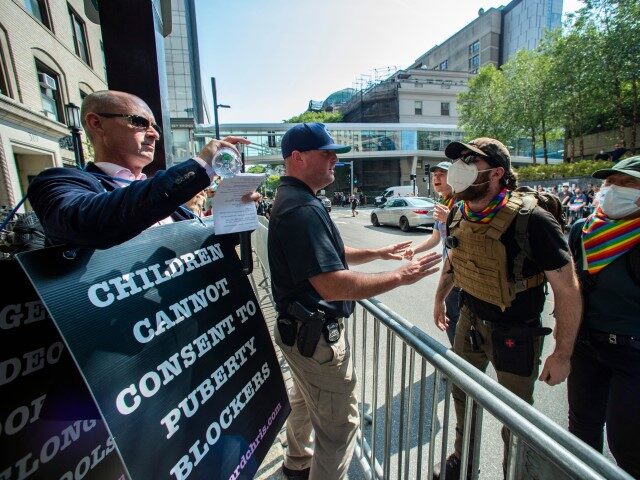Fewer than one in four Americans think it’s okay to give puberty blockers to children who experience gender dysphoria, a new poll reveals.
A mere 22 percent of Americans surveyed believe it should be legal to provide children under 18 with puberty blockers or to perform gender reassignment surgery on them, according to a Scott Rasmussen National Survey conducted March 6-7.
The survey also found that only 10 percent of Americans think that biological males who identify as women should be allowed to compete in women’s athletic events.
The results of the U.S. poll emerged just as England’s National Health Service (NHS) issued a landmark decision banning puberty blockers for children who identify as transgender, citing insufficient evidence of the procedure’s effectiveness.
“We have concluded that there is not enough evidence to support the safety or clinical effectiveness of puberty-suppressing hormones to make the treatment routinely available at this time,” said a spokesperson for NHS England.
Imagine that. https://t.co/ReNymvOkEu
— Breitbart News (@BreitbartNews) September 21, 2023
“Children, young people, and their families are strongly discouraged from getting puberty blockers or gender-affirming hormones from unregulated sources or online providers that are not regulated by U.K. regulatory bodies,” states the NHS website.
Catholic League president Bill Donohue praised the shift in public opinion and policy, while suggesting it is not happening fast enough.
There will come a day when the public will look back at this period in Western history and declare it to be “an era when child abuse was celebrated by the medical profession, as well as by elites in all walks of life,” Donohue said.
Protecting children from activists, philanthropists, educators, journalists, social media influencers, therapists and doctors who prey on them for ideological or financial profit is “the most critical civil rights issue of our day,” Donohue declared.
The issue has become so confused in the United States that Ketanji Brown Jackson, the first black woman on the Supreme Court, publicly stated that she is unable to define what a “woman” is.

COMMENTS
Please let us know if you're having issues with commenting.